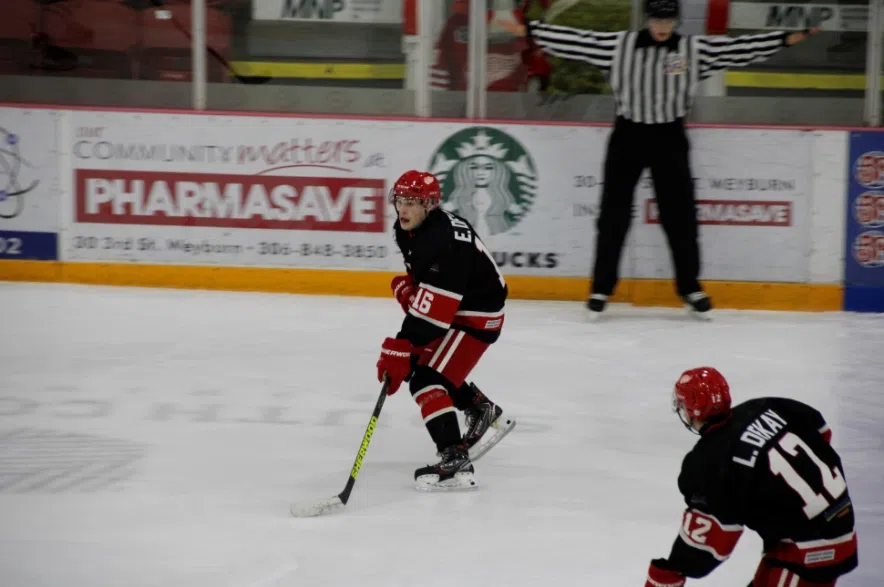OTTAWA — Foreign Affairs Minister Mélanie Joly is suggesting Canada would support a policy of allowing Ukraine to use NATO-provided arms inside Russia, amid a debate among members of the military alliance.
“We believe that we need to be forward-leaning on this question,” Joly said at a Wednesday news conference in Stockholm, Sweden.
“Russia has no red line, and so that is why we need to make sure that when it comes (to) Ukraine’s defence, that we’re there to help them.”
Ukraine has repeatedly sought permission to use weapons donated by NATO countries inside Russian territory, particularly as Ukraine runs short of weapons and faces repeated strikes from Russia.
The United States and Germany have at various points warned about the risk of escalating the situation, as they try to avoid a direct war with Russia.
France and countries bordering Russia in the Baltic region have generally supported the use of donated arms to strike military targets in Russia, such as ammunition factories and sites from which missiles are launched.
Joly said the issue will be “the core of our conversations” between European foreign ministers this week, who are preparing for the NATO leaders’ summit in Washington, D.C., this July.
On Monday, NATO Secretary-General Jens Stoltenberg said members should lift restrictions on Ukraine because “the right to self-defence includes hitting legitimate targets outside Ukraine.”
On Thursday, the Associated Press reported that three U.S. officials said President Joe Biden had given Ukraine the go-ahead to use American weaponry to strike inside Russia, for the limited purpose of defending Kharkiv, a major city under heavy attack.
Joly said Canada has no restrictions on how Ukraine uses the arms it sends, a fact that Russia’s embassy in Ottawa said was unsurprising.
“(The) Canadian government has been at the front of the anti-Russian policy of the West, particularly in the context of Ukraine,” a spokesperson said in a statement Thursday.
“Russia possesses all the military and technical capabilities necessary to neutralize this threat, as well as to undertake preventive measures to counter it,” the embassy wrote.
It added that any officials from NATO countries in Ukraine helping to transfer equipment or train Ukrainians “are a legitimate target for the Russian armed forces.”
Ukrainian ambassador Yuliya Kovaliv confirmed to the Senate foreign-affairs committee Wednesday that Canada has not put restrictions on how Ukraine uses its military aid.
“The type of the weapons that Canada has been donating to us was mostly tanks, armoured vehicles (and) ammunition that physically are mostly (being used) by our soldiers in our territory,” Kovaliv testified.
Kati Csaba, head of the Ukraine Bureau at Global Affairs Canada, told the committee that her team is trying to keep up domestic support for Ukraine, while defending Ottawa’s financial support to the country.
“It is absolutely a risk, Ukraine fatigue, and especially in light of more recent crises,” she testified.
“We need to be conscious of the fact that we cannot just rely on Canadian support for Ukraine to be eternal; we need to keep actively pursuing that.”
Sen. Amina Gerba noted that the Kiel Institute’s Ukraine Support Tracker pegs Canada in 20th place for its share of national income dedicated to the country.
She pointed out that two Université du Québec à Montréal professors argued in a February book that this does not match Ottawa’s rhetoric of support for Ukraine.
Csaba said analysts use a range of methods to calculate funding. Her team is “doing everything we can for this support to continue,” she said.
“Our support to Ukraine is well known and appreciated by allies and partners, and I haven’t seen a case where we were asked to stand up in that context where we did not.”
Csaba added that Canada is making “a concerted effort” in its embassies abroad to convince other countries to resist “the disinformation that Russia is so effectively spreading” about the war.
She said a short-term priority is getting developing countries to attend a Ukraine peace summit in Switzerland in mid-June.
“There is very much this feeling that we do need to bring these countries that are on the fence, that are not necessarily willing to speak up to Russia and say, ‘You know, what you’re doing is wrong.’ But we want them to be attending and listening, at a very minimum, to the positions of Ukraine,” Csaba testified.
“Many countries will not be convinced necessarily, but at least they will come away with some new perspectives.”
This report by The Canadian Press was first published May 30, 2024.
Dylan Robertson, The Canadian Press







